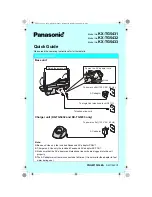
Introduction to System Programming
1–2
Programming Basics
Planning Forms
Before you begin to program or modify your communications system, you should
familiarize yourself with the system planning forms. Initially, system planning
forms are used to plan your communications system and program your system
during installation. After installation, they remain a source for all programming
information on your communications system database. The information ranges
from the system time and date to specific equipment configurations and feature
programming.
Each planning form is either required or optional:
■
Required forms are necessary to program the system.
■
Optional forms are needed only if the system manager included the
features or options on the forms.
Before you begin to program or modify your system, review the Control Unit
Diagram on system planning Form 1 to identify the module types installed in the
system’s control unit. Use this information to program or modify lines and trunks
and assign or reassign lines to telephones. Check the physical control unit to
verify that the modules are placed in the slots identified on the diagram. Correct
the diagram on Form 1 if there are any discrepancies.
Before you make any changes to your system, be sure to do the following:
■
Mark any system modifications or changes on the appropriate planning
form before the change is made. Keep your planning forms up to date.
■
Check the
Feature Reference
for possible feature interactions.
■
Program the system or the system component during the appropriate idle
state. See “Idle States.”
Summary of Contents for MERLIN LEGEND Release 3.1
Page 372: ...Memory Card 3 236 Common Administrative Procedures...
Page 572: ...Telephones 4 200 Programming Procedures...
Page 715: ...Memory Card Programming Procedures 4 343...
Page 749: ...Feature Quick Reference 5 34 Centralized Telephone Programming...
Page 773: ...Customer Support Information B 2 System Programming...
Page 798: ...Button Diagrams E 6 System Programming...
Page 800: ...Sample Reports F 2 System Programming Continued on next page...
















































